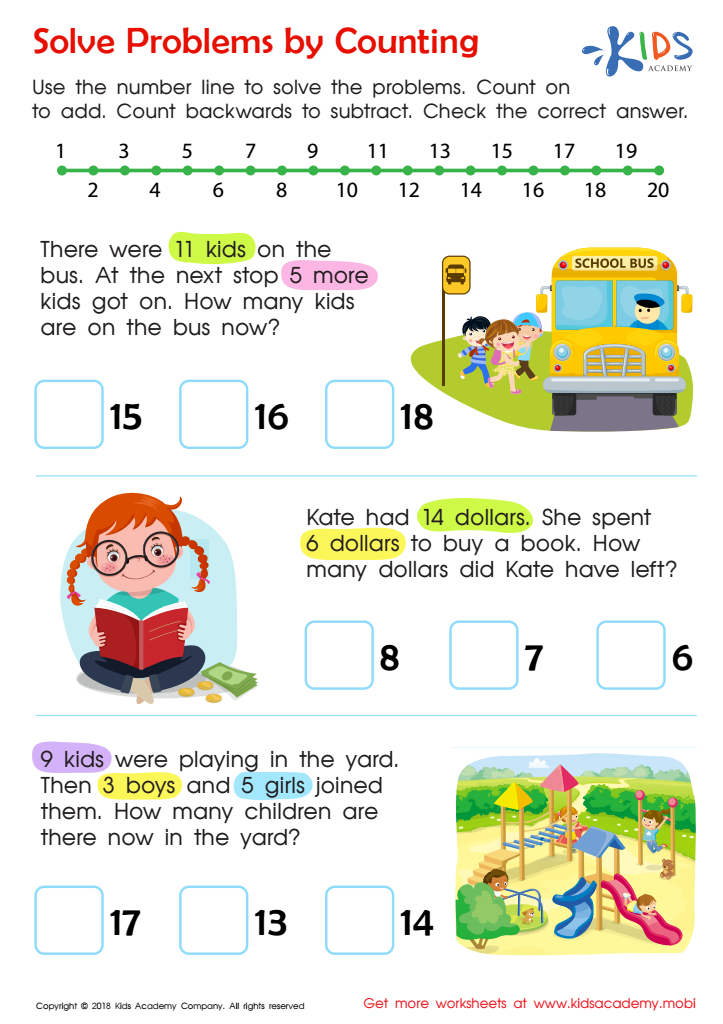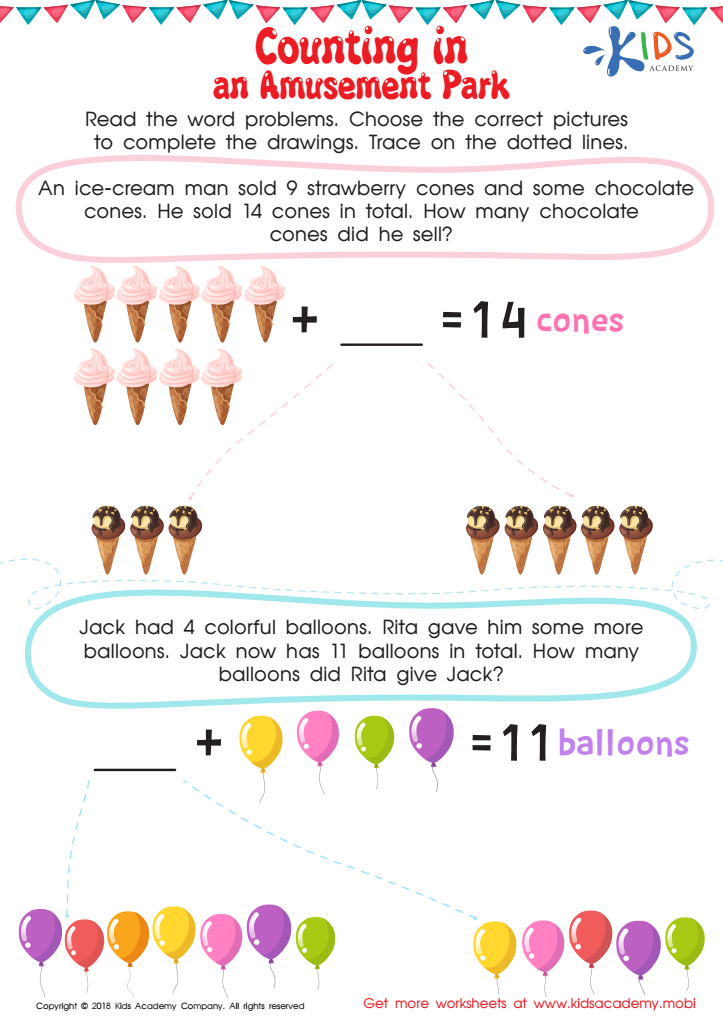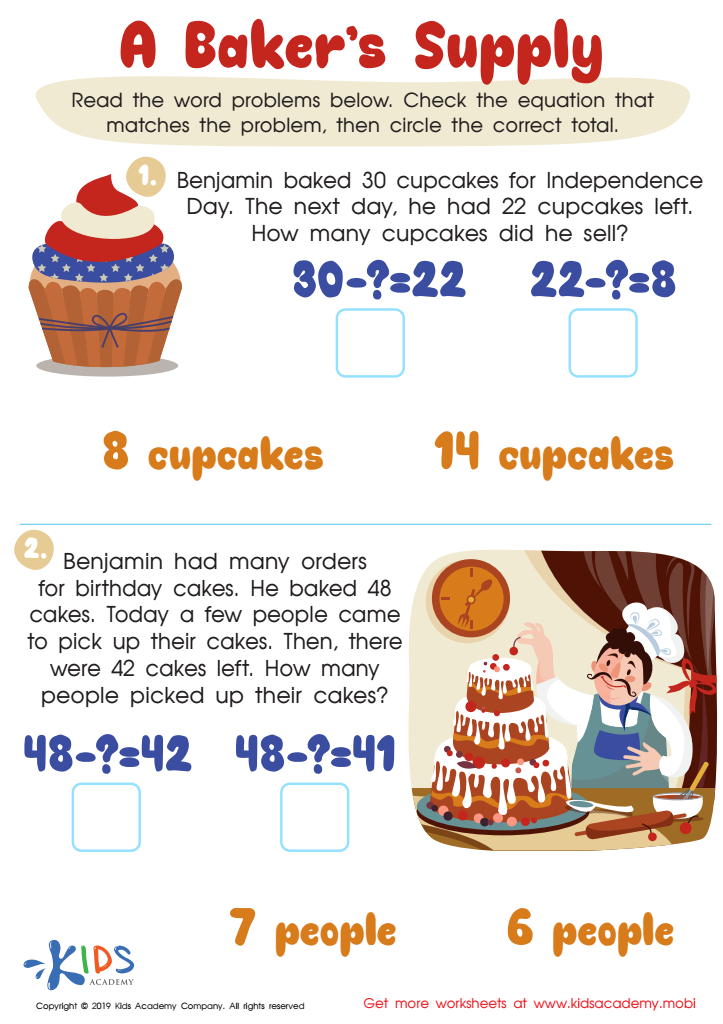Counting practice Easy Word Problems Worksheets for Ages 3-5
3 filtered results
-
From - To
Introduce young learners to the exciting world of math with our "Counting Practice Easy Word Problems Worksheets for Ages 3-5"! These delightful, age-appropriate worksheets combine engaging word problems with counting practice, making learning fun for your little one. Perfectly designed for early learners, they help enhance basic math skills, comprehension, and logical thinking. Each worksheet features playful illustrations to keep kids interested while they build confidence in their counting abilities. Ideal for both classroom use and homeschooling, these worksheets are a fantastic resource for parents and teachers aiming to create a solid math foundation. Start their journey to math mastery today!


Solve Problems by Counting Worksheet


Counting in an Amusement Park Worksheet


A Baker's Supply Worksheet
Counting practice and simple word problems are crucial for young children ages 3-5, and parents and teachers should certainly care about integrating these activities into their daily routines. At this early age, children are developing foundational math skills that are essential for their cognitive development. Counting practice helps children recognize numbers, understand quantity, and develop one-to-one correspondence, where they learn that each object being counted corresponds to one number. These skills form the basis for higher-level math concepts they'll encounter later on.
Easy word problems are equally important as they introduce children to the concept of using math in everyday scenarios. This not only makes learning fun and engaging but also shows them the practical applications of math. Through word problems, children start to grasp the ideas of addition and subtraction in a relatable context, enhance their reasoning abilities, and improve their problem-solving skills.
Incorporating these activities into a young child's learning regimen helps in building their confidence. Children who are comfortable with basic math skills are more likely to approach future mathematical challenges with a positive attitude. Therefore, prioritizing counting practice and solving simple word problems is a vital step in setting the stage for lifelong learning and mathematical success.

 Assign to My Students
Assign to My Students
















